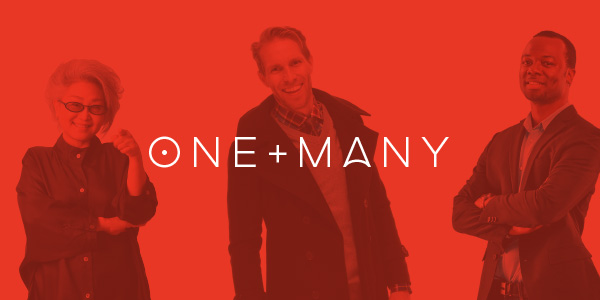Why get expertise to plan equipment + service replacements

This is the story of how one interim commercial development specialist was able to re-think and turnaround one independent healthcare provider’s capital purchasing strategy to deliver real financial savings and realise wider benefits across the organisation
The post pandemic period is ushering renewed growth in private healthcare in the UK. The sector’s ongoing support to help the NHS clear its growing elective care backlog, is coupled with a noticeable increase in the self-pay market. The diagnostics market in particular is getting a shot in the arm with the Richard’s Review of Diagnostic Capacity: Recovery and Renewal (Oct 2020) which sets out additional reform and investment required beyond the NHS Long Term plan to support post-covid19 recovery. Its recommendations include funding to create approx 145 Community Diagnostic Centres around the country, equating to 3 for each of the 42 Integrated Care Services. Timely diagnosis is seen as key to reducing long-term healthcare costs.
NHS commissioning will require substantial capacity from private diagnostic testing providers. To meet this growth in demand, an increase in capital investment expenditure in new technology, equipment and estate management will be required. Many private providers are gearing up to the opportunities. This leads to the question:
Is your procurement strategy optimised to get more value from stretched capital and revenue budgets? Or is it time for a rethink?
The Persuasive Argument
Diagnostic or Theatre Operating equipment is expensive to buy and to keep optimally operational. Making the right purchase at the right price and with the right financing can be time-consuming and complex. Equipment buying tends to go in tandem with long-term service and support contracts, lasting many years, with many private providers also offering turnkey solutions with substantial upfront capital expenditure. The benefits of getting the buying decision right include lower costs and improved supplier performance over the equipment’s’ lifecycle. These benefits are well understood but companies struggle to get the right terms, often leaving suppliers in the driving seat.
Effective procurement and contract management is about securing the right service and equipment at the best price with the right supplier, a partner rather than provider. This means identifying and maximising the potential value at the outset. Many of these contracts run in excess of 5 years, so finding the best deal with a supplier capable of evolving the relationship over time can realise significant commercial benefits over both the short and longer term. With the right expertise on board, this is achievable, but many companies struggle to know where to start.
This is the story of how one leading interim commercial development specialist was able to re-think and turnaround one independent healthcare provider’s capital purchasing strategy to deliver real financial savings and realise wider benefits across the organisation.
The Assignment (Task)
The Interim Consultant, we’ll call her Louise, joined this private provider at a time when it was embarking on its most costly equipment refresh programme in its history. The provider’s management team wanted to engage an expert to ensure that the new capital expenditure being made would be:
- Professionally scrutinised
- Managed in such a way as to deliver real commercial value
- Leave behind a legacy of best practice procurement processes
Reporting to the CFO, Louise’s task was to lead the procurement and contract management process including vendor negotiations. This gave her the opportunity to introduce some standardised processes that would join-up decision-making across departments, while strengthening transparency and governance. All with the ultimate aim of delivering real and measurable value from the investment. This objective was more than achieved, as the testimonial from the CFO shows.
Initially brought in to run a multimillion pound procurement process, Louise swiftly identified process improvements that delivered significant cost savings, ROI and realised wider benefits across the organisation. These changes supported delivery of both our short- and longer-term strategic goals. Louise’s approach was consistently collaborative introducing new ways of working and up-skilling teams to embed sustainable change. Louise is highly experienced and delivery-driven; she comfortably works at every level and get things done. I would thoroughly recommend her to any organisation looking to identify and deliver the benefits of change.’
CFO, Independent Healthcare Provider
The Challenge
Louise arrived as the provider was gearing up plans for significant investment in its radiology diagnostics capacity to replace older equipment and add new machines to the assets, and expansion of its existing estate to create a new Healthcare Centre. Prior to any procurement, it is essential to spend enough time planning the entire process from service specifications to defining expected outcomes over a programme lifecycle. Minimising whole-life costs starts with a plan and this is what Louise set out to do. All too often the focus is on day one costs, which can lead to making the wrong choice. Louise’s objective was to work closely across the organisation to ensure all Big Ticket lifecycle spend on equipment, services and maintenance resulted in the best possible decision, and delivered substantial savings whilst accurately meeting the requirements of clinicians, the Board and Trustees at the outset.
The Common Pitfalls of Commercial Procurements
Having led a number of different procurement initiatives over many years, and worked across a variety of organisations, Louise knows that there are many obstacles and pitfalls that can hinder good procurement decision-making.
Her experience tells her that these are some typical barriers, not all encountered at the same time:
- Lack of standardised RFP/Tender processes across departments
- Lack of competitive benchmarking and pre-bid engagement
- A limited or unviable bidding pool
- Time pressures and poor processes leading to inefficient/rushed pricing negotiations
- Processes not underpinned by rigorous governance
- Competing pressures/priorities/preferences from clinicians often leading to siloed purchasing decisions
- Poorly drafted service specification and tender documents– the more detailed the specification, the better suppliers can meet the requirements inc. finance options, mobilisation, delivery & exit plans, value add, contract terms etc
- Poor tender responses can lead to protracted contract negotiation and delays to mobilisation – leading to service delays/disruption
- Contracts that are not watertight open the risk of legal challenge later
- Insufficient lead-in time at contract renewal to effectively assess supplier performance/value in order to re-tender for a better deal – the default is to renew as time has run out
- Cosy relationships with incumbent suppliers, leading to insufficient scrutiny of value delivered and wider competitive bidding
A poor procurement process has many repercussions including reputational damage, the potential to increase costs, or impact on patient care. The best way of avoiding such risk is through excellent stakeholder engagement with all parties at every stage of a process that is robust and transparent.
The Approach

As part of taking the lead for the commercial procurement of new high-value imaging equipment, Louise reviewed the existing procedures and evaluated what the organisation was doing well and where it could do better. She identified areas for improvement and successfully introduced new processes, upskilling the organisation’s business leads along the way.
During her 18-month assignment she delivered over £3m of cost savings on new procurement contracts and optimised the terms for contract renewals.
Louise strengthened in-house commercial capabilities by working with the executive team to define and deliver a standardised process, and build a roadmap for getting there with a focus on:
- Planning – preparation and formal project management; developing detailed service specifications, operational data, costs, timescales enables better-informed decisions underpinned by good governance
- Standardisation – of processes leading to improved efficiency and uniform quality in vendor engagement, creating better buying power and returns
- Scale – Knowing what is needed and when can help assess scale, even if equipment is delivered over a period of time and, if negotiated effectively, can lead to higher discount offers or running costs.
As a legacy, Louise put in place vital building blocks for more a more robust approach to equipment and replacement procurement, contractual management and vendor engagement.
The Benefits Realised
Essentially, Louise put the process and tools in place to enable more informed decision-making, delivering more persuasive business cases and ultimately achieving more with less. Specific highlights of Louise’s contributions include:
- Achievements
- Identifiable savings and cost reductions in contract negotiations
- More accurate financial forecasting at Business Case /Investment Committee stage
- Service/product that is fit for purpose, through more comprehensive service specifications for suppliers which can form the basis of the contract, while building in mechanics for change as part of a future-proofing strategy.
- Efficiency savings as a result of a formal, time-bound process empowering business leads to negotiate
- Leaving behind an upskilled workforce and building in-house capability
- Rigorous Governance
- Accountability, transparency and assurance to Trustees and Board
- Standardisation, benchmarking, clear audit and process trail
- Reduced risk of future legal disputes and/or delayed implementation
- Enhanced reputation, stakeholder engagement and supplier relationships
- Modernising Infrastructure
- Underpinning infrastructure transformation and achieving substantial savings
- Increased market competition, wider pool of expertise and access to new technologies
- Integration across the organisation; Big Ticket purchasing embeds into Clinical, IT, Finance, Estates, PMO, Legal teams
Practicus works with and supports a highly skilled network of Interim Professionals. They are hired because of their expertise and demonstrable track record in being able to transform business operations, meet defined goals and make a tangible contribution to the bottom line. Louise is one of our best.
Commercial Sectors
Interim Management
PMO as a Service
About Practicus
Our purpose is to help people and their organisations navigate change. We take an integrated approach to change, combining robust change management and project management with subject matter expertise in strategy, technology, behaviour, data and operational efficiency.
Our services include Consulting, Recruiting and Advising.



